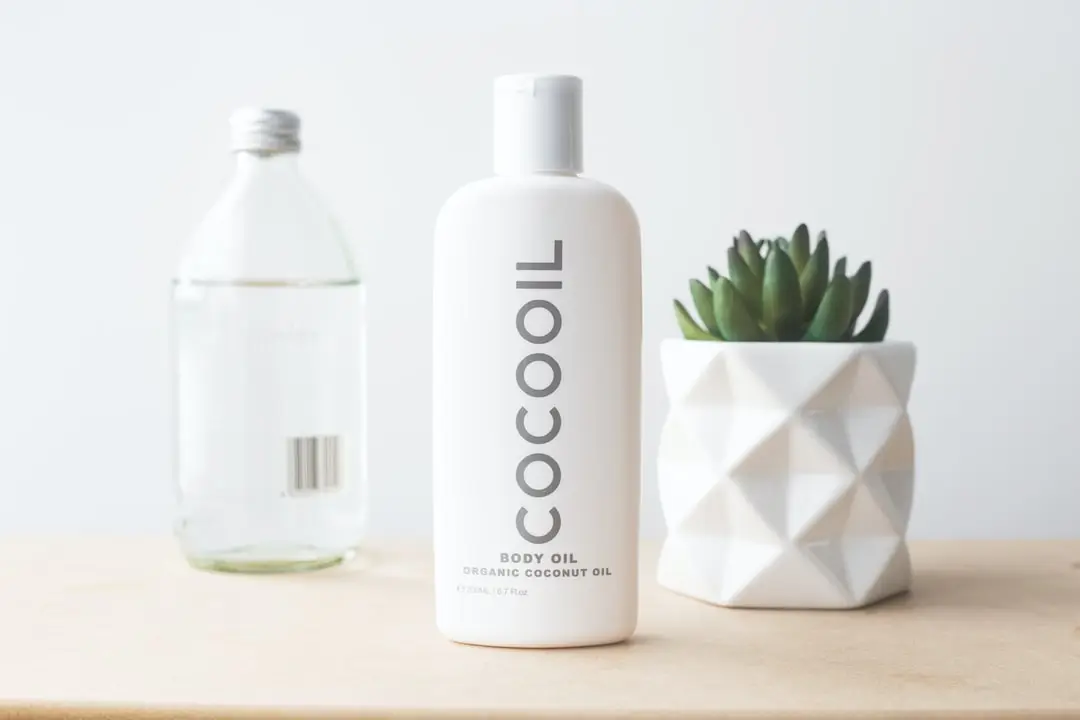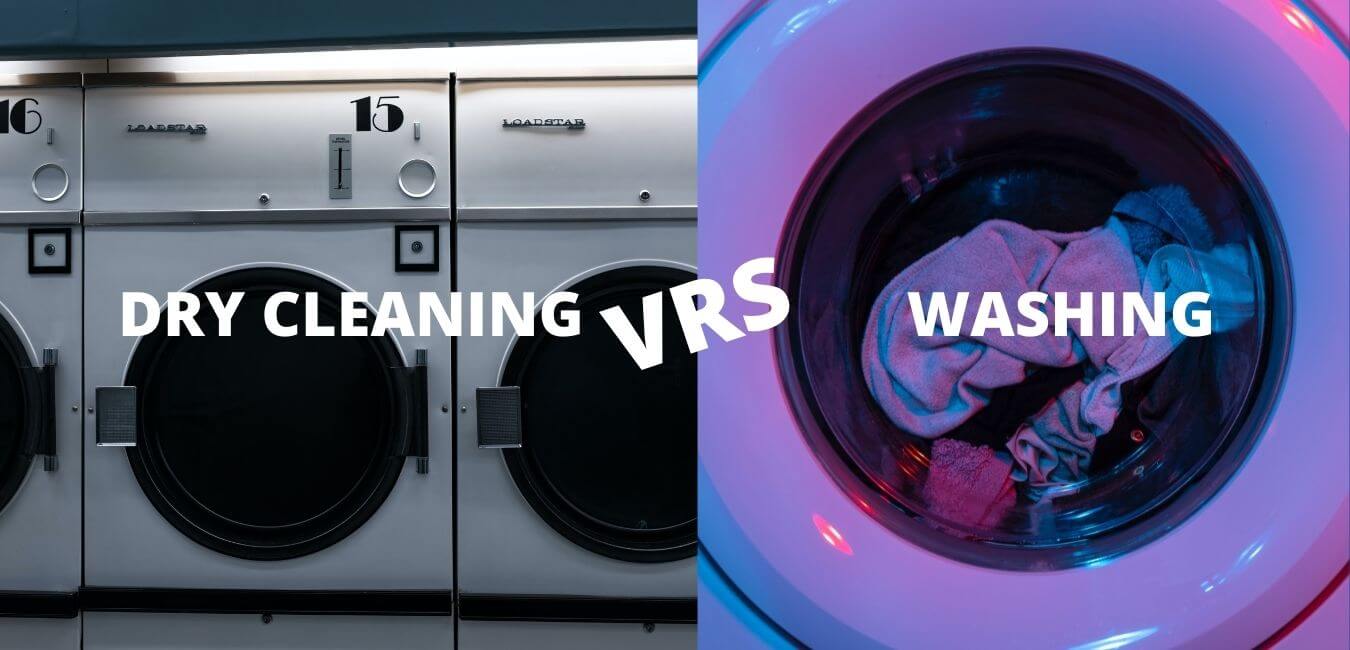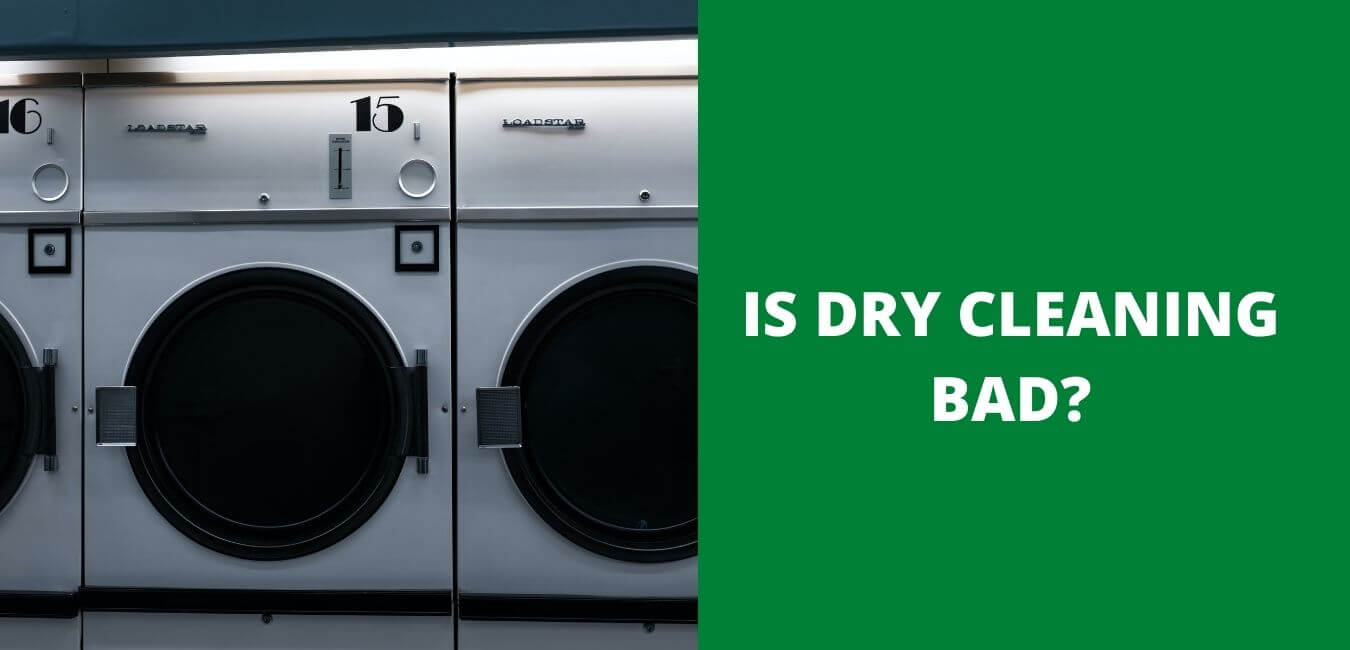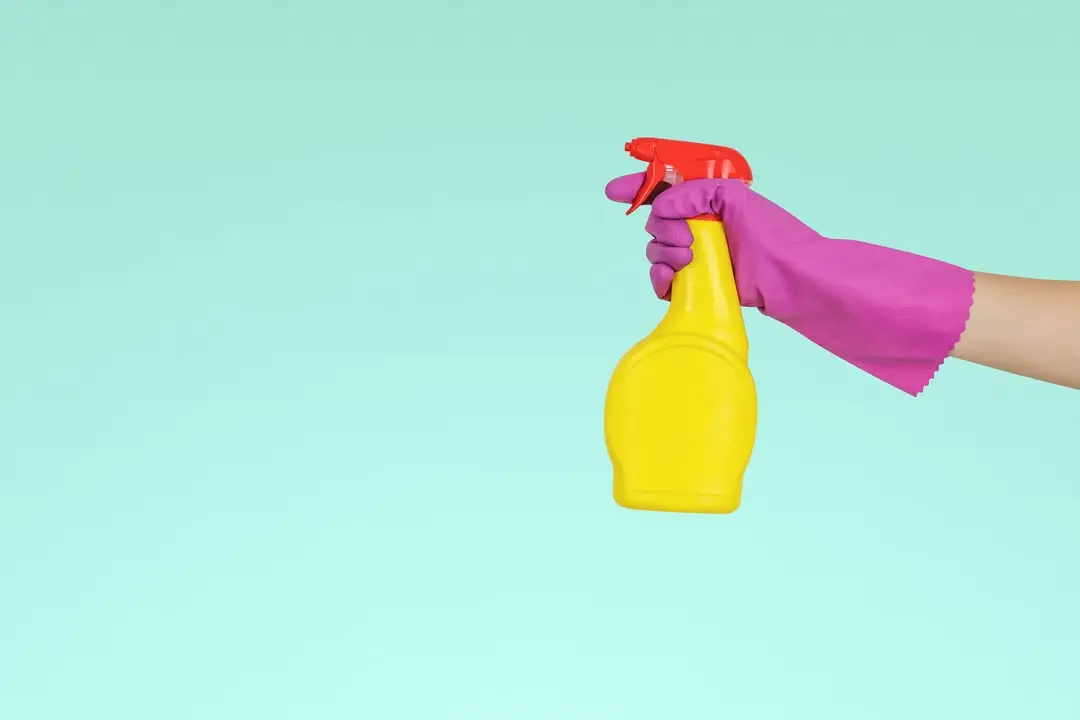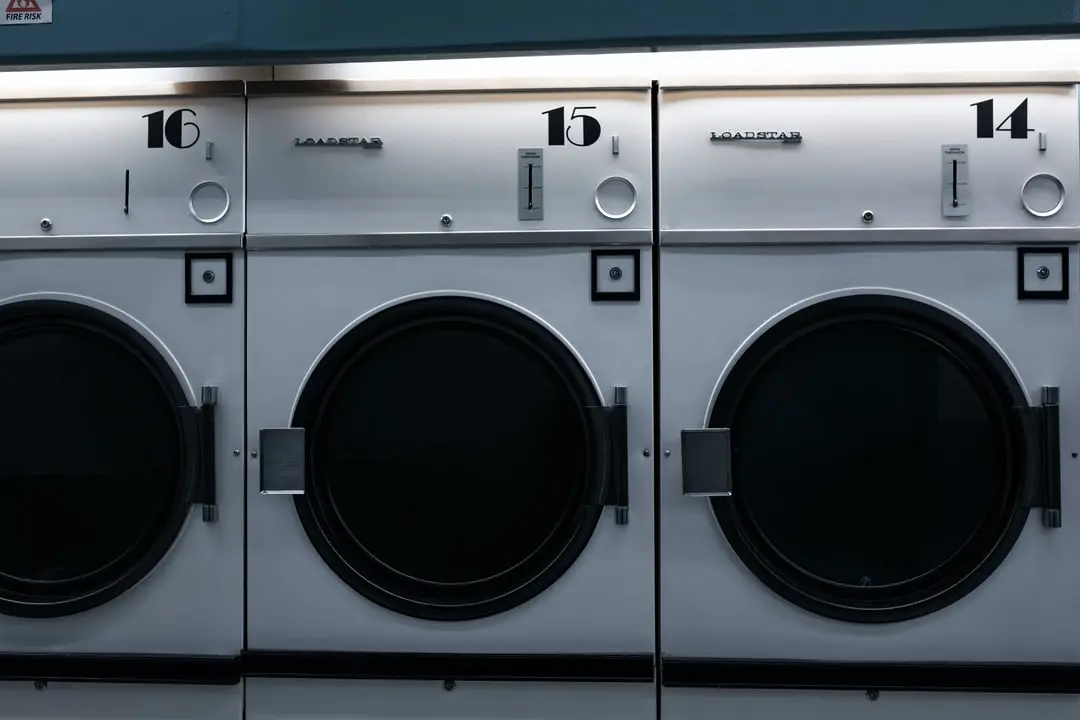Coconut oil is such a common ingredient in everything from cooking to beauty products that we often wonder whether it can cause stains on our clothes.
The answer is yes and no! Coconut oil is not as staining as other oils like olive oil or butter, but it does leave behind a greasy residue that stains light-colored clothing.
There are some tricks you can use to get the oil out of your clothes.
Why does coconut oil stain clothes?
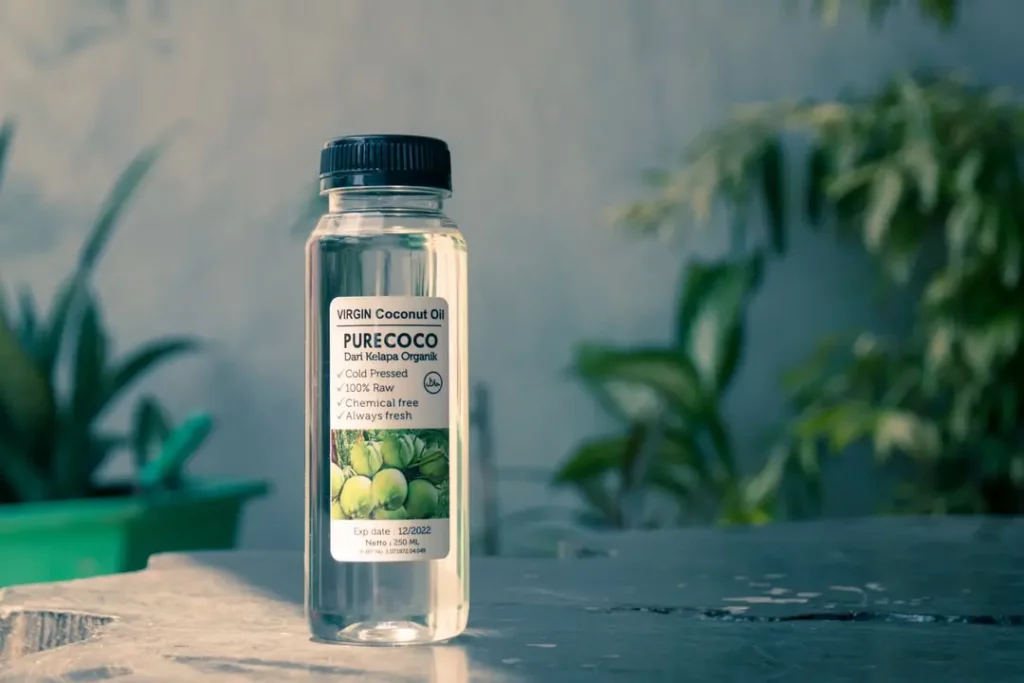
When coconut oil comes into contact with water, it is less likely to leave a mark on your clothing. However, if you don’t wash out all of the oil and accidentally dry it in the dryer, that’s when you’ll see a mark on your clothes.
If you do get oil stains on your clothing, the best way to remove them is by washing them with Dawn dish soap or another type of grease-cutting dish soap. Also, sprinkling salt and rubbing gently before washing according to garment instructions is an effective way of removing the oil stains.
Getting rid of the greasy residue left behind by coconut oil can be tricky. Because you want to wash away all of the oil, it’s best if you use hot water when washing your clothes. After that, simply put them in the dryer on the lowest setting that your fabrics can tolerate. This should remove most of the residue from your clothing.
Don’t worry, just because coconut oil stains your clothes doesn’t mean that it will happen every single time. As long as you watch out for these common mistakes, you should be able to enjoy the many benefits of using coconut oil while avoiding unsightly grease stains on your clothes!
Interested in learning more about how to get rid of stubborn stains? Click here.
Factors to consider when removing coconut oil stains
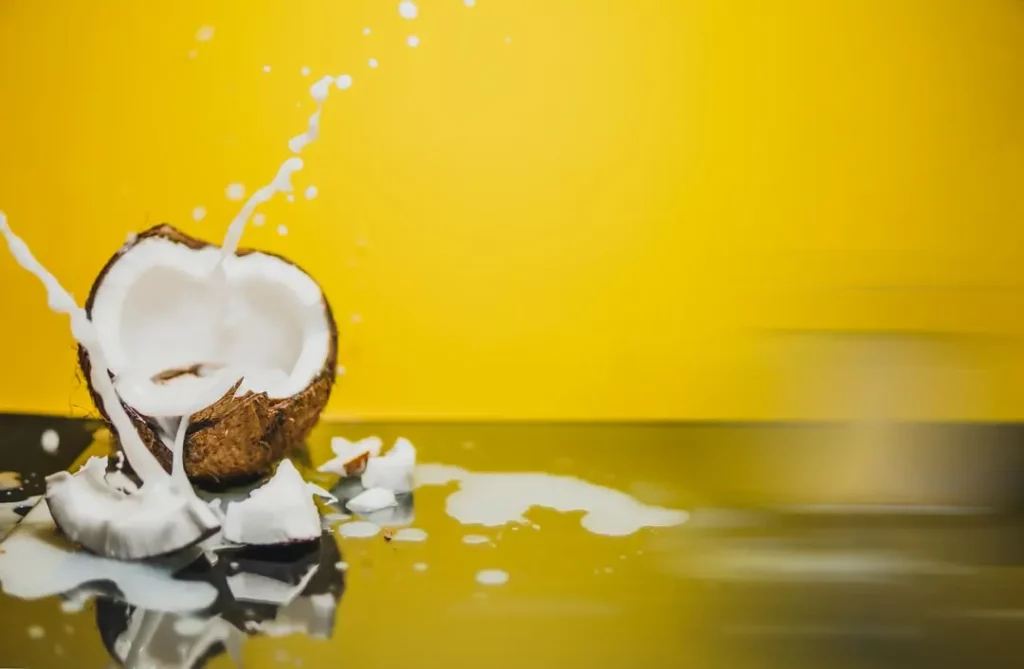
- The most important factor to consider when cleaning coconut oil stains is that it should be done quickly.
- Oil stains should never be soaked in water, as the coconut oil will dissolve in water.
- One should also avoid using hot water to clean oil spots, as this will help the oil penetrate into the furniture or carpet.
- Olive oil is a good substitute for cleaning up spills of coconut oil on leather chairs, leather bags, wood surfaces, etc. If you do not have olive oil, diluted dishwashing liquid or an emulsifying agent such as Asperox Degreaser will work.
- Liquid dish soap is the best way to clean up oil stains from fabrics and carpets. Liquid dish soap has so many uses (for example, cleaning kitchen and bathroom floors; using in shining jewelry; cleaning hairbrushes and combs; trapping and killing fruit flies; etc.); but it’s most effective in erasing greasy and oily stains.
- Blotting is the best way to get rid of oil stains on smooth and shiny surfaces. One should bring out any absorbent material to clean up the oil splash on the surface to prevent the oil from spreading further.
- For woody surfaces, avoid using solvents such as turpentine, as it may soften the paint on the wood and allow it to be wiped away. Also, avoid using strong alkalies, which can cause damage to both the oil and the surface it has been applied to.
- If the oil is in a large area, allow it to dry, and then brush or vacuum up any remaining powdery residue with a stiff bristle brush (be careful not to spread the stain). Then cleanse the surface with Asperox Degreaser diluted in water; this will remove most greasy stains from carpets and fabrics.
- Rinse the non-permeable surface or object with hot water and blot to dry.
- If this does not completely remove the stain, you can try another application of Asperox Degreaser or liquid dishwashing soap.
The crucial factors to consider when removing coconut oil stains are that it should be done quickly after staining. One should also use cold water if possible and avoid using hot water on permeable materials as this will help the oil penetrate into the materials.
Using a dry absorbent material such as a paper towel is also key to soaking up any excess oil before making a bigger mess. One should avoid the use of strong alkalies. These can damage both the oil itself and the material that was stained. Also, using cold water is best to avoid spreading the stain further.
How to Remove Coconut Oil Stains from Clothes?
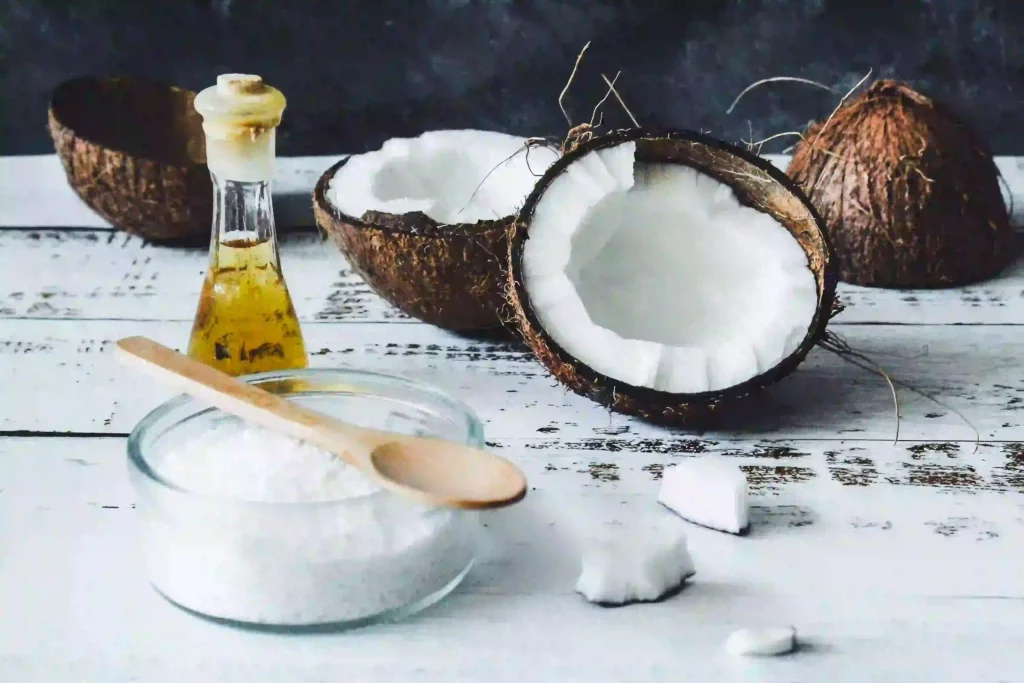
First of all, coconut oil stains can be removed by using one or more of the following methods:
1. Dry cleaning or dry-solvent cleaning. For example, using tetrachloroethylene (perchloroethylene)
2. Washing in a washing machine
3. Applying heat to the stain and scraping it off with an appropriate tool (e.g. butter knife) followed by washing in a washing machine.
For best results, follow each procedure properly.
1. Dry cleaning or dry-solvent cleaning
It is any cleaning process for clothing and textiles that does not use water and is known as “dry cleaning.” Dry cleaning still uses liquid, but the clothing is immersed in a water-free liquid solvent called tetrachloroethylene (perchloroethylene), commonly referred to as “perc” in the industry.
The procedure of dry cleaning
- Using a vacuum cleaner, suck up as much coconut oil as possible from the surface where it has been spilled.
- Soak up any remaining oil from the spill with a cloth, paper towel, or absorbent paper and place it in a plastic bag along with the cloth, paper towel, or absorbent paper used to soak up the oil. Place this plastic bag in a dryer on very low heat for about an hour or more, depending on how much coconut oil is still left on the cloth, paper towel, or absorbent paper used. Make sure to check on it frequently so as not to burn anything.
- Once the cloth, paper towel, or absorbent paper has dried completely, dispose of them in a plastic bag and take them to the garbage disposal area of your house.
- Using a dry cleaning solvent (if available), clean the vacuum cleaner thoroughly with warm water, making sure to get rid of every trace of the coconut oil.
2. Washing in a washing machine
- Put the oil-stained clothes in a washing machine along with regular detergent powder or liquid detergent and wash normally using warm water.
- Clean the washing machine thoroughly with warm water, making sure to get rid of every trace of the coconut oil before putting in another load of clothes to wash.
3. Applying heat to the stain and scraping off with an appropriate tool (e.g. butter knife) followed by washing in a washing machine
- Apply heat to the stain and scrape off as much oil as possible using a butter knife or any other flat surface that can be used for scraping along with some paper towels/absorbent papers/newspapers etc.
- Put all the oil-stained clothes in a washing machine along with regular detergent powder or liquid detergent and wash normally using warm water.
- Clean the washing machine thoroughly with warm water, making sure to get rid of every trace of the coconut oil before adding another load of clothes to wash.
As you can see, there are several ways to clean coconut oil stains from clothes. All it takes is some effort and time on your part, with the result being beautifully clean clothes!
For similar articles, click here.
Final Thoughts
You may not have to worry about coconut oil stains ruining your clothes after all. Coconut oil has many health benefits that are too good to pass up, but it’s important to know how to avoid unsightly grease stains on your clothing.
Using the methods described in this article will help you keep your garments clean and stain-free while still enjoying these wonderful products. Good Luck!
